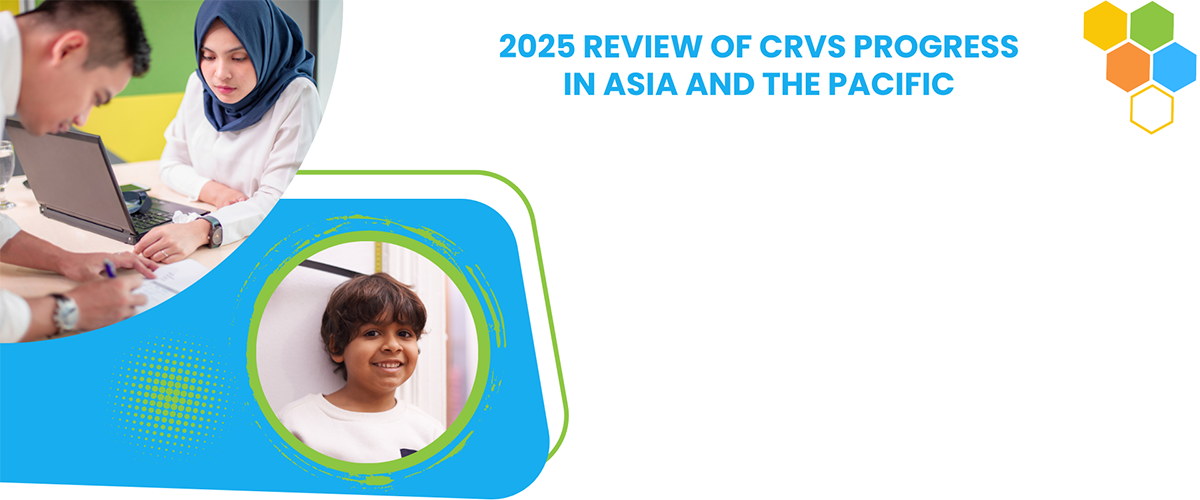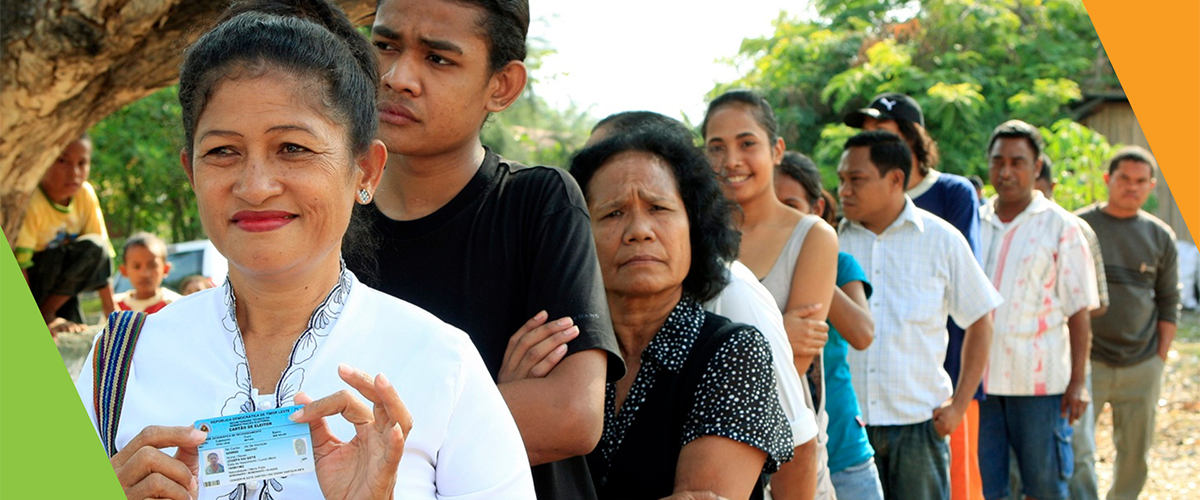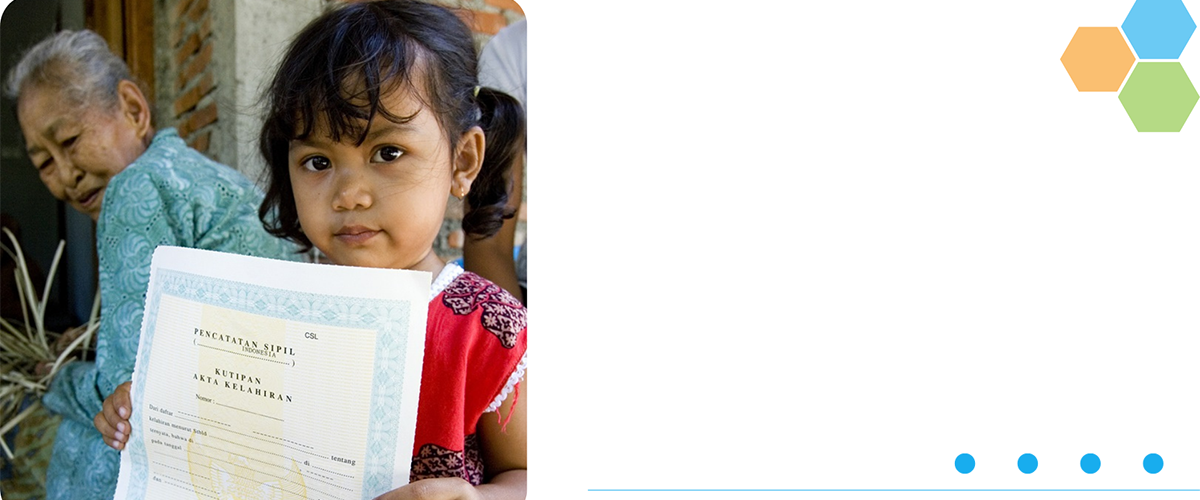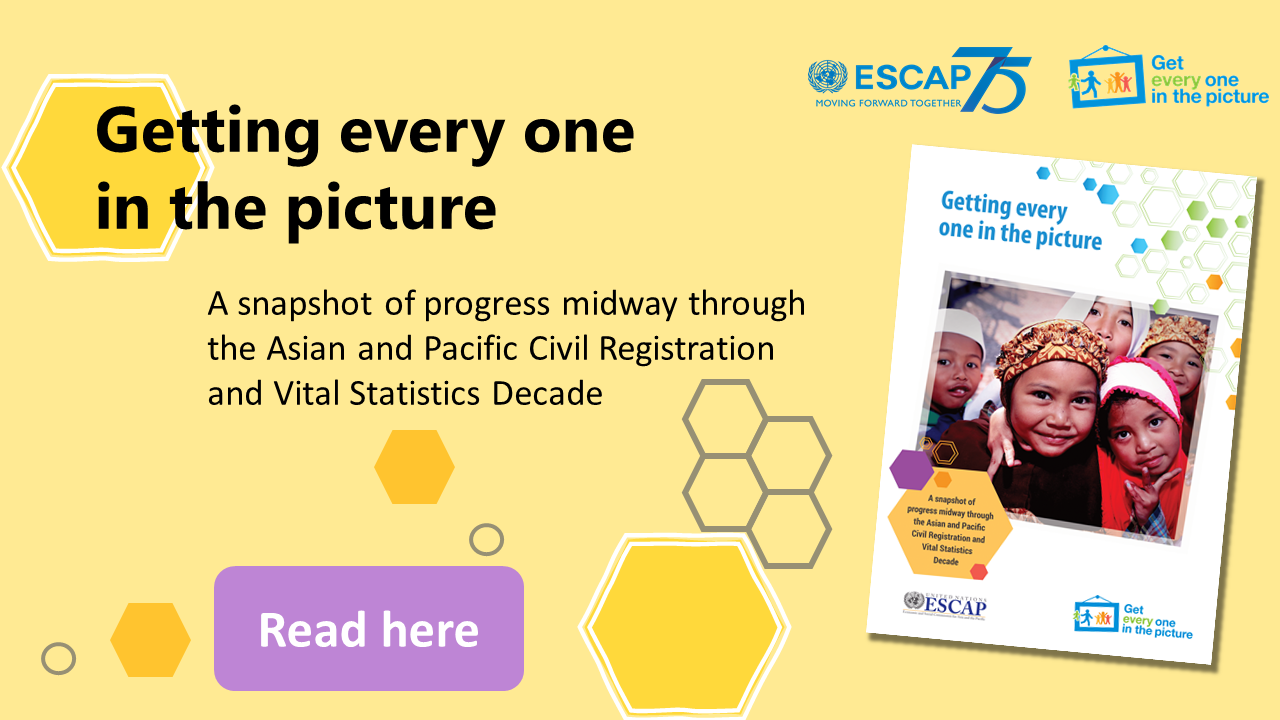2025 review of CRVS progress in Asia and the Pacific
Members and Associate Members of ESCAP are currently undertaking a review of their progress since the inception of the Asia Pacific CRVS Decade in 2014. A questionnaire has been distributed to National CRVS focal points and should be returned to ESCAP by 15 September.
Read More










